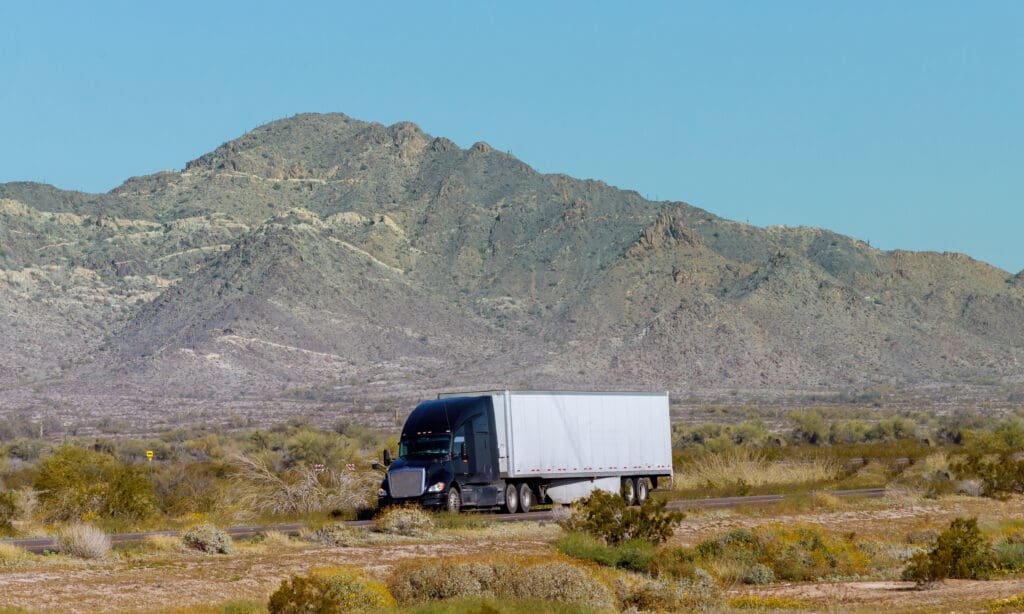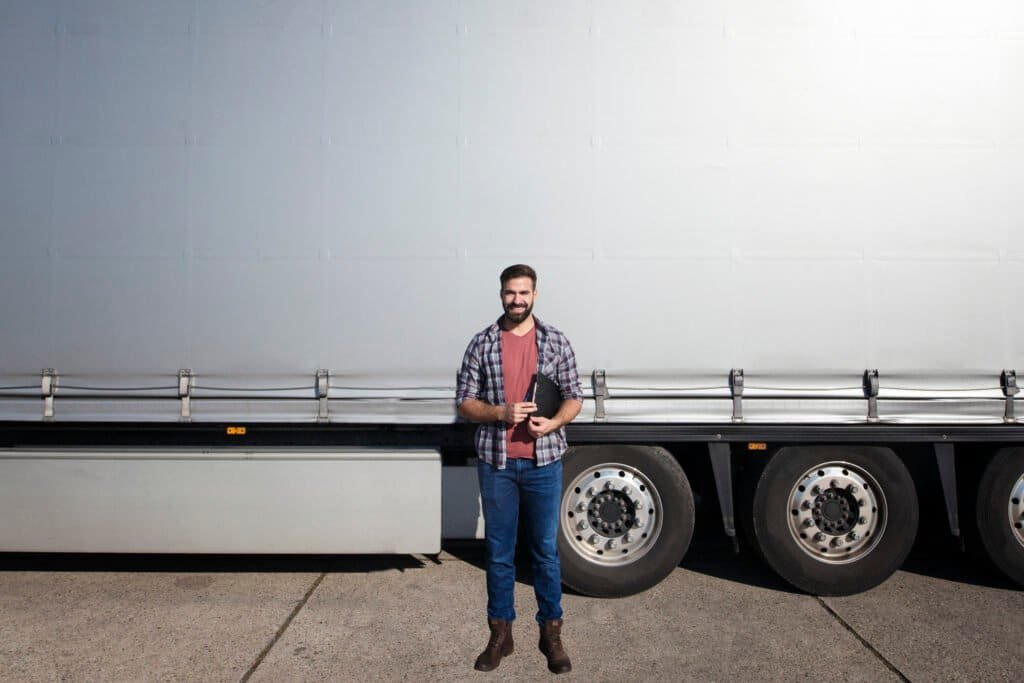Chicago is one of the busiest freight hubs in the country, with trucks moving in and out around the clock. And while the demand for shipping keeps rising, finding dependable CDL drivers has become a growing challenge for many companies.
For local freight companies, hiring a qualified driver isn’t just about filling a seat—it’s about safety, reliability, and keeping deliveries on schedule. Whether you manage a small fleet or operate across multiple states, the quality of your drivers directly impacts your bottom line.
This guide is here to help. We’ll walk you through the process of finding and hiring the right drivers for your operation—from understanding what makes a CDL driver truly qualified to where to look, what to ask, and how to build a team that sticks around.
If you’re ready to hire smarter and build a stronger workforce, this is where it starts
Understanding the CDL Driver Landscape in Chicago

Before you can start hiring, it helps to understand the road you’re driving on—literally and figuratively. Chicago freight companies operate in one of the most active logistics hubs in the U.S., thanks to the city’s central location, major highways, rail connections, and access to regional distribution centers. That means demand for qualified CDL drivers is high—and competition to recruit them is even higher.
There’s also a wide variety of freight moving through the city every day: everything from food and medical supplies to construction materials and consumer goods. Depending on what you’re hauling, you might need drivers with different certifications or endorsements—like hazmat (H), tanker (N), or doubles/triples (T).
On top of that, today’s trucking job market isn’t what it was even a few years ago. Many experienced drivers are aging out of the workforce, and new drivers are looking for more flexibility, better pay, and respectful work environments. That’s made it harder for many companies to find and keep solid talent—especially without a competitive hiring strategy or the support of a reliable recruiting company that understands the CDL market.
Whether you’re a logistics manager, dispatcher, or fleet owner, it’s more important than ever to understand what today’s CDL drivers are looking for—and how your company stacks up. Before you can hire truck drivers successfully, you need to know what you’re competing with and what qualified candidates expect from a job.
This section sets the stage. In the next one, we’ll break down exactly what makes a CDL driver qualified—beyond just holding a license.
What Makes a CDL Driver “Qualified”?

When it’s time to expand your team, many companies make the mistake of focusing solely on licensing. When you hire truck drivers, it’s easy to assume that a valid CDL is enough—but a license alone doesn’t guarantee reliability, safety, or the right fit for your business. For Chicago freight companies, making smart hiring decisions means knowing what truly sets a qualified candidate apart.
What really defines a qualified CDL driver:
Proper Licensing and Endorsements
Start with the basics: Does the driver have a valid Class A or Class B license? Do they hold the endorsements necessary for your operation—like hazmat (H), tanker (N), or doubles/triples (T)? These show that the driver is not only legally certified but also trained for specialized loads.
Clean Driving Record
A driver’s safety history is one of the most important indicators of future performance. Look for a clean motor vehicle record (MVR), minimal violations, and no recent serious infractions. This helps you maintain compliance and reduces risk on the road.
Experience with Your Type of Freight
Experience matters. Not all drivers are familiar with the demands of every type of haul. Whether you’re handling temperature-sensitive goods, oversized equipment, or local deliveries, it’s important to find drivers who have done it before—and done it well.
Reliability and Communication Skills
Good drivers do more than drive. They keep logs, report issues, and stay in sync with your dispatching team. Strong communication and reliability help your business stay efficient and responsive.
Physical and Medical Fitness
All CDL drivers must pass a DOT physical, but beyond that, make sure they’re physically capable of performing tasks like inspections, loading checks, and long-distance driving. Up-to-date medical cards are a must.
Hiring someone who’s simply “qualified on paper” won’t cut it in today’s competitive and compliance-focused industry. Take time to find CDL drivers who check the boxes and bring value beyond the basics—your business (and your bottom line) will thank you.
Where to Find the Right CDL Drivers in Chicago

Once you know what makes a CDL driver truly qualified, the next step is knowing where to find them. For many companies, especially in a competitive hub like Chicago, this can be one of the toughest parts of the hiring process. If you’re looking to hire truck drivers, it’s no longer enough to just post on a generic job board and wait.
Many successful freight companies are turning to CDL-specific platforms that focus solely on connecting freight companies and truck drivers. These sites often let you target candidates based on license type, experience, and even preferred routes, giving you more control and higher-quality leads.
Another effective approach is building relationships with local driving schools and CDL training programs. New graduates are often ready to start immediately, and being one of the first companies to connect with them can give you a hiring edge. You may also find qualified candidates through local industry events, word of mouth, or even referrals from your current drivers—especially if they’re happy with your company and how it handles dispatching and scheduling.
Don’t overlook social media, either. Many experienced drivers join Facebook groups, online forums, and local pages where job opportunities are frequently shared and discussed. Being active in those spaces can boost your company’s visibility and reputation in the driver community.
In short, if you want to hire the best drivers in Chicago, you’ll need to go where they are—not wait for them to come to you. The better your outreach strategy, the better your team will be.
How to Structure a CDL Driver Job Posting That Attracts the Right Talent

You’ve figured out where to look for drivers—now it’s time to make sure they notice your job post. In a competitive market like Chicago, a generic listing just won’t cut it. Whether you’re a large fleet or a trucking company near me, your posting should be clear, specific, and driver-focused.
Key elements to include:
A Clear, Search-Friendly Job Title
Use keywords drivers are actually searching, like “Class A CDL – Regional Driver” or “Local CDL Truck Driver – Home Daily.” Skip vague titles like “Driver Wanted.”
Essential Job Details Up Front
Include license type, route (local, regional, OTR), pay structure, and home time. Drivers want to know right away if it fits their lifestyle.
What Makes Your Company Stand Out
Do you offer new trucks, friendly dispatching, steady routes, or weekend home time? Highlight that.
Benefits and Extras
Mention all of the benefits: insurance, PTO, 401(k), bonuses, or other perks—these can tip the scale in your favor.
Simple, Clear Requirements
Be upfront about experience, endorsements, and safety standards. Clear expectations help attract the right drivers.
Strong Call to Action
Encourage drivers to apply directly or contact you easily—no complicated application processes.
A well-structured post makes a lasting impression and helps you connect with drivers who are a true fit. Next, we’ll cover how to screen those candidates and make the right hire.
The Interview & Screening Process: What to Ask and Verify

Once you’ve found a potential CDL candidate, the real work begins. Interviewing and screening aren’t just formalities—they’re your best tools for making sure the driver is not only licensed, but reliable, safety-conscious, and a good fit for your company.
Start with a phone or video call to get a feel for their experience, professionalism, and communication skills. Ask about their driving history, the types of freight they’ve hauled, and what kind of routes they’re looking for. This helps you assess whether their background aligns with your operation—especially if you’re managing tight dispatching schedules or specialized freight.
Next, verify the essentials. Review their CDL license and endorsements, check their motor vehicle record (MVR), and confirm that their DOT medical card is current. It’s also smart to contact previous employers to get a sense of their performance and reliability. Don’t skip FMCSA compliance checks, especially if you’re hiring for regulated routes.
When possible, conduct a road test or driving evaluation. Seeing how a driver handles your equipment gives you insight into their skills, attention to detail, and safety habits—things that don’t always come through in a resume.
Finally, trust your instincts. A candidate might look great on paper, but if they’re not responsive, show up late, or seem unclear about the job expectations, that’s a red flag. Hiring the wrong person can cost far more than taking the time to get it right.
In the next section, we’ll show you how to keep great drivers once you’ve brought them on board—because hiring is just the beginning.
Also Read: Lead Generation Strategies For Recruiting Quality Drivers In A Competitive Trucking Market
Onboarding and Retaining Your Best CDL Talent

Hiring great drivers is only half the battle. With so much competition in the trucking industry, especially in busy markets like Chicago, freight companies struggle to retain top CDL talent. Driver retention has become just as important as recruitment—and just as challenging.
The onboarding process sets the tone. A structured, well-organized introduction helps new drivers feel welcomed and supported. Make sure your onboarding includes not only safety training and equipment walkthroughs but also a clear explanation of how your dispatching system works, what their typical routes will look like, and who to contact when they need help.
Drivers want to feel like more than just a number. Simple things like introducing them to your team, checking in during their first few weeks, and recognizing their good performance can go a long way toward building loyalty.
Of course, retention often comes down to a few core factors: fair and competitive pay, consistent home time, quality equipment, and open communication. If drivers feel respected, valued, and set up for success, they’re far less likely to leave for the next offer that comes along.
Don’t forget to collect feedback. Ask your drivers what’s working, what could be better, and what would make them stay long-term. Then act on that feedback whenever possible. Companies that listen tend to keep good people longer—and that means fewer hiring headaches down the road.
If you’re looking to hire truck drivers who are safe, reliable, and professional, make sure your company is doing just as much to keep them. Driver turnover is expensive, disruptive, and often preventable with the right approach. Connecting with a trusted recruiting agency can help you build a dependable team—and retain qualified talent faster.
Conclusion: Smart Hiring Builds Stronger Freight Operations
In today’s fast-moving logistics world, Chicago freight companies can’t afford to take shortcuts when it comes to hiring CDL drivers. From understanding what makes a candidate truly qualified to knowing where to find them, how to screen them, and how to keep them, each step in the process plays a critical role in your company’s long-term success.
Hiring the right drivers doesn’t just keep your loads moving—it reduces risk, improves safety, strengthens your reputation, and helps your dispatching team run more efficiently. And once you’ve brought great drivers on board, thoughtful onboarding and retention strategies help make sure they stay for the long haul.
Whether you’re just starting to hire truck drivers or looking to improve your current process, the key is to be intentional and informed at every stage. Partnering with local Chicago recruiters who understand the regional market can also give your hiring efforts a powerful edge.
Want to take your next step with confidence? Explore our additional resources, or contact us to learn more about how your company can stand out in a crowded market—and build a team of CDL professionals that keeps your business rolling.


